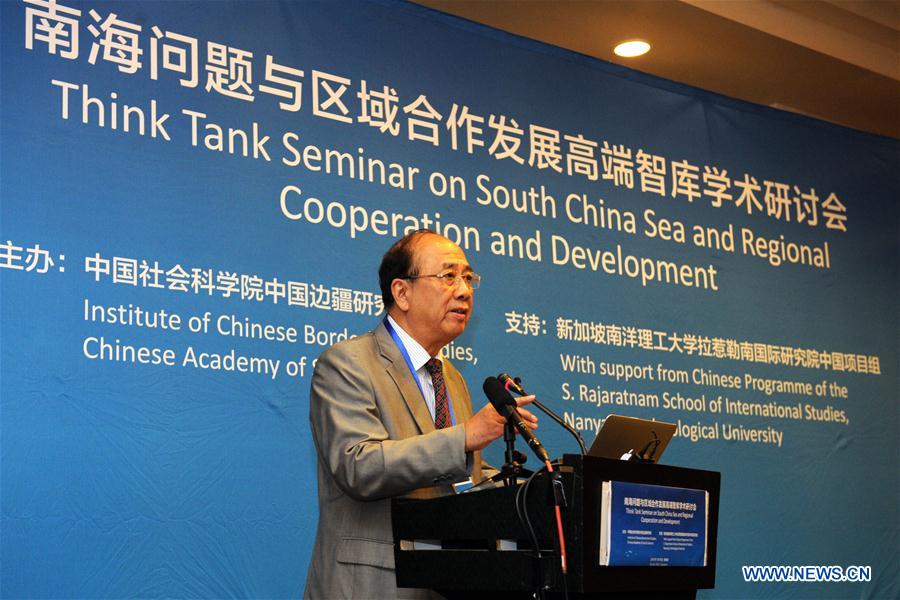Full coverage: The South China Sea Issue
Legal and political experts from China and southeast Asian countries have compared notes on the South China Sea arbitration case at a seminar in Singapore. The one-day meeting focused on topics such as settlement mechanisms for maritime disputes, solutions to the South China Sea issue and regional cooperation and development.
"Nothing but a farce orchestrated under the pretext of law"
This is how former Chinese State Council official Zhao Qizheng described the arbitration.
"Let me summarize the activity of the ad hoc arbitral tribunal as having taken big money for a dirty deal and ending with an ugly image for illegality and invalidity," Zhao Qizheng, former minister of China's State Council Information Office, said.

Zhao Qizheng, former minister of China's State Council Information Office, speaks at the Think Tank Seminar on South China Sea and Regional Cooperation and Development held in Singapore, July 18, 2016. Organized by the Institute of Chinese Borderland Studies, Chinese Academy of Social Sciences, the seminar attracted more than 20 experts from academic institutes in China and countries in the region, including Singapore, Indonesia, Malaysia and India. (Xinhua/Then Chih Wey)
During his speech, Zhao pointed out that the tribunal does not have jurisdiction over the case. He emphasized that negotiations is the only way to resolve disputes in the South China Sea. He also added that the issue will not harm China-ASEAN relations.
"Peace, stability, cooperation, and development in the South China Sea region are in line with the interests of all parties, and this is an indisputable fact. Faced with the situation in the South China Sea, China and ASEAN must enhance dialogue and remove interference to focus on cooperation, which is the most realistic strategy choice," Zhao said.
His view is echoed by a Cambodian expert. He believes the arbitration is damaging to the UN Convention on the Law of the Sea.
"Conspiracy theories going on that some country stayed behind it, and want to damage the image of China on the global stage. That is politically complicated. If it is political issue, it need political solution. I don't think the arbitration can provide a solution to this kind of territorial disputes in the South China Sea. The most effective and appropriate way is to promote dialogue and negotiations," Vannarith Cheang, chairman of Cacmbodian Institute for Strategic Studies, said.
Since China and ASEAN have built a relationship since 1991, both sides have achieved mutual political trust while engaging in economic cooperation and cultural exchanges. The Declaration on the Conduct of Parties in the South China Sea signed in 2002 is also a milestone that has contributed to regional peace and stability.
"ASEAN has a good interest in having a dialogue with China, because ASEAN depends on many factors, especially in terms of economy. We need to have a peaceful solution to have a greater expansion on economy," Professor Prasit Aekaputra, faculty of Law, Thammasat Univeristy, said.
"The bilateral relationship should not be hijacked by the South China Sea issue. The conflicts and tensions in the South China Sea and the differences there should be separated from the broader bilateral relationship because there is a lot more to cooperate and there is a lot more to work together," Li Mingjiang, research fellow with Nanyang Technological University, said.
Legal and political scholars agree that the South China Sea disputes can only be settled through negotiation and any external intervention will only escalate tensions.















